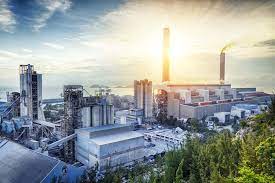WHAT IS REAL ESTATE?
Real estate refers to property consisting of land and any buildings or structures on it, along with the natural resources and rights associated with the land. It is a broad term that encompasses various types of properties, including residential homes, commercial buildings, industrial sites, and vacant land.
It is typically bought, sold, or rented by individuals, businesses, or investors for various purposes. Residential includes properties used for housing purposes, such as single-family homes, apartments, condominiums, and townhouses. Commercial real estate involves properties used for business activities, such as office buildings, retail stores, hotels, and warehouses. Industrial real estate encompasses properties used for manufacturing, distribution, or storage, such as factories and industrial parks. Vacant land refers to undeveloped or unused land that can be purchased for future development or investment.
The industry plays a significant role in the economy, as it involves various professionals such as real estate agents, brokers, developers, investors, appraisers, and lenders. This can be a valuable asset and investment, with potential for appreciation in value over time. It also serves as a basis for generating rental income or operating businesses.
Transactions typically involve legal processes, documentation, and regulations that vary across countries and regions. These transactions may include buying, selling, leasing, financing, or investing in real property.

Types of Real Estate
There are several types o, each serving different purposes and catering to specific needs. Here are some common types of real estate:
1.Residential Real Estate: This includes properties used for residential purposes, such as single-family homes, apartments, condominiums, townhouses, and vacation homes.

2.Commercial Real Estate: This category encompasses properties used for business activities. It includes office buildings, retail stores, shopping malls, restaurants, hotels, and warehouses.

3.Industrial Real Estate: Properties used for manufacturing, production, storage, or distribution fall under industria. Examples include factories, warehouses, distribution centers, industrial parks, and research facilities.

4.Mixed-Use Real Estate: These properties combine different types of uses within a single development. For instance, a building might have commercial space on the ground floor and residential units on the upper floors. Mixed-use developments aim to create vibrant and self-contained communities.

5.Office Real Estate: Properties designed and utilized primarily for office space fall into this category. It includes office buildings, business parks, and office complexes.

6.Agricultural Real Estate: This types involves farmland, ranches, orchards, and other properties used for agricultural purposes.

7.Vacant Land: Undeveloped or unused land that can be purchased for future development or investment is considered vacant land. It may be used for residential, commercial, industrial, or agricultural purposes.

It’s worth noting that real estate categories may overlap, and some properties may fall into multiple classifications depending on their features and usage.
Economics of Real Estate
The economics refers to the study of how real estate markets operate and the economic factors that influence the buying, selling, and development of properties. It involves analyzing the supply and demand dynamics, pricing trends, investment returns, and the overall impact of real on the economy.
Here are some key aspects of the economics of real estate:
- Supply and Demand: Like any other market, real estate is influenced by the interplay of supply and demand. The availability of properties (supply) and the desire of buyers or tenants to acquire them (demand) determine market conditions and prices. Factors such as population growth, demographics, and economic conditions can affect the balance between supply and demand.
- Property Valuation: It is valuation is a crucial aspect of the economics. Determining the value of a property involves considering factors such as location, physical condition, amenities, market conditions, and comparable sales. Valuation methods include appraisals, comparative market analysis, and income capitalization approaches.
- Housing Affordability: It is economics also encompasses the study of housing affordability, which examines the relationship between housing costs and household income. Affordability is influenced by factors like housing supply, wages, interest rates, and government policies. Affordability issues can have social and economic implications, affecting housing accessibility and overall economic well-being.
- Real Estate Investment: It is often viewed as an investment asset class. Investors analyze potential returns and risks associated with real estate investments. Factors such as rental income, property appreciation, financing costs, taxes, and market conditions impact investment decisions. Real estate investment can provide income, diversification, and potential capital appreciation.
- Economic Impact: It has a significant impact on the economy at various levels. Construction and development activities create jobs and generate economic activity. Real estate transactions, such as buying and selling properties, contribute to economic growth through transactional activity, taxes, and related industries such as finance, construction, and professional services.
- Market Cycles: Its markets are cyclical and can experience periods of expansion, stability, contraction, and recovery. Market cycles are influenced by factors like interest rates, economic conditions, investor sentiment, and regulatory changes. Understanding market cycles is essential for making informed real estate decisions.
- Government Policies and Regulations: It is economics also considers the influence of government policies and regulations on the market. Policies related to land use, zoning, taxation, mortgage lending, rent control, and affordable housing initiatives can have a significant impact on the real estate sector.
By studying the economics of it, individuals, investors, policymakers, and industry professionals gain insights into market dynamics, make informed decisions, and understand the broader implications of real estate on the economy.























![To Increase YouTube Subscribers Must Use These Service Provider [New]](https://businessleed.com/wp-content/uploads/2022/11/To-Increase-YouTube-Subscribers-Must-Use-These-Service-Provider-New-360x180.jpg)














